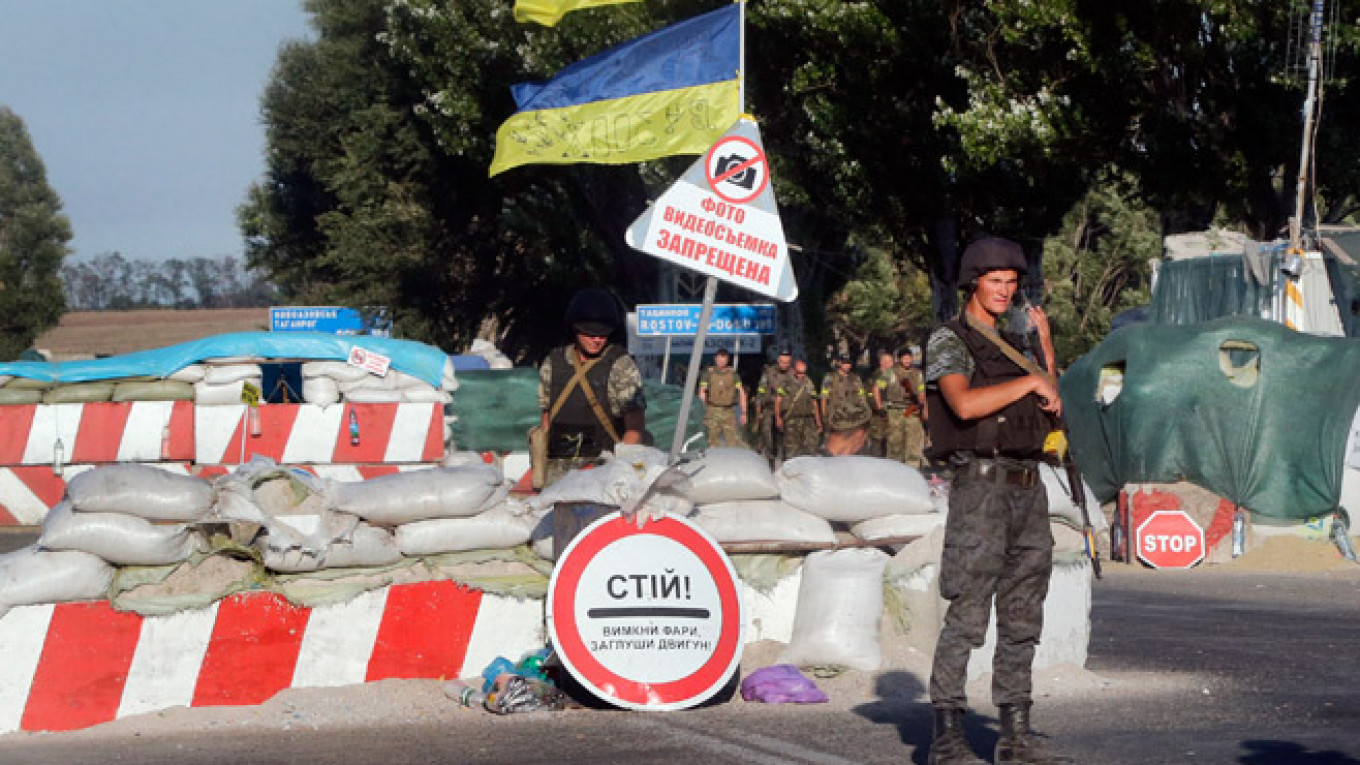After the breakup of the Soviet Union in 1991, Ukraine had the second-largest armed forces in Europe (after Russia) and the fourth-largest in the world (after Russia, China and the United States). Twenty-three years later, when the Russian military invaded Ukrainian territory in Crimea this February, the country formidably failed to offer any military resistance.
On March 11, Ukraine's then-defense minister, Igor Tenyukh, reported that at the moment only 6,000 men in the country's ground forces were ready for combat, only 15 percent of military aircraft were able to fly, and only 10 percent of air-defense systems were operational.
How this could happen? Who were the Russian "polite men" who infiltrated Crimea and swiftly blocked and then seized the Ukrainian military installations there with thousands of servicemen inside? How did they do it, day by day? What lessons learned by the Russian political and military leadership after the brief war with Georgia in 2008 made the Crimean annexation such a successful operation?
The Center for Analysis of Strategies and Technologies (CAST), a Moscow-based privately owned think tank studying military topics, has tried to answer these and many other questions on the historical, political and military aspects of the ongoing conflict between Russia and Ukraine in a book set to be published in the United States by Minneapolis-based East View Press in September. A collection of analytical essays by the prominent Russian and Ukrainian military, political and security analysts, the book is to be titled "Brothers Armed: Military Aspects of the Crisis in Ukraine."
"We tried to grasp and explain what is going on as soon as possible, working on a border that separates journalism and serious academic analysis," says CAST head Ruslan Pukhov. "Some articles may seem too hastily written to a picky reader. We will fix that in the Russian edition that we plan to publish early next year."
While it's true that some parts could use more attributions and footnotes to match rigorous American academic writing standards, the book still provides insightful answers to questions that inevitably arise with any inquisitive watcher trying to understand the uneasy political and military dynamics within and between the two formerly biggest and brotherly Soviet republics.
The books tells the story of the lengthy and painful divorce of the once-united Soviet Black Sea Fleet between Russia and Ukraine, and how Russia struggled to keep its portion armed and afloat while the government in Kiev sold many warships for scrap metal.
According to the book's authors, Ukraine's army for far too long remained a relic of the Soviet army in its organization, military doctrine and even geography, with main facilities located in the country's east. Attempts to reorganize the government were torpedoed by government personnel shakeups — Ukraine saw nine (!) defense ministers since 2004 — and a constant lack of money to the extent that in 2009 electricity had to be cut off at some military facilities and the servicemen had to give up hot food and switch to canned field rations.
The Russian armed forces, however, already went through their tough years after the Soviet collapse and remained ready to wage a large war similar to World War II with a vast conscription army. But after the 2008 conflict with Georgia, the Russian army underwent a drastic reform, the book argues.
The key changes included the creation of mobile quick-response brigades, manned by professional servicemen, and rapid technological modernization of the army. Hundreds of military drills to maintain combat readiness and skills of the professional units have been held by the Russian army since then.
Also, in 2011, within the famous Main Intelligence Directorate (GRU) of the General Staff, a new elite special operations unit was created, writes Andrei Nikolsky, a long-time military correspondent for the Vedomosti newspaper. The unit's officers were actually the notorious "polite green men," the main Russian task force behind the initial military invasion of Crimea, he argues in the book.
Several articles describe Moscow-Kiev relations for more than two decades in run-up to the conflict. Russian President Vladimir Putin has, as Boris Yeltsin before him, always remembered about the issue of Crimea, which was passed from Russia to Ukraine in 1954 by then-Soviet leader Nikita Khrushchev, the authors say. But the Russian leaders would not advance any claims until loyal presidents sat in Kiev. Russian television that broadcast in Crimea, as well as the active political and generous charity projects of former Moscow Mayor Yury Luzhkov there, helped maintain pro-Russian sentiments among the locals, and this became one of the necessary conditions of the swift and peaceful annexation of the peninsula, the authors argue.
The latest salary raises and boosted social benefits for the Russian military and its increased combat effectiveness as demonstrated by the Russian media were crucial factors behind the bloodless seizure of the Ukraine's military facilities in Crimea and the massive transfer of the Ukrainian military manning them into the Russian armed forces.
One big regret about the book, though, is that it concentrates on the Crimea operation and does not cover the military developments in eastern Ukraine beyond May. But perhaps this is grimmer fodder for another study yet to come.
Contact the author at [email protected]
A Message from The Moscow Times:
Dear readers,
We are facing unprecedented challenges. Russia's Prosecutor General's Office has designated The Moscow Times as an "undesirable" organization, criminalizing our work and putting our staff at risk of prosecution. This follows our earlier unjust labeling as a "foreign agent."
These actions are direct attempts to silence independent journalism in Russia. The authorities claim our work "discredits the decisions of the Russian leadership." We see things differently: we strive to provide accurate, unbiased reporting on Russia.
We, the journalists of The Moscow Times, refuse to be silenced. But to continue our work, we need your help.
Your support, no matter how small, makes a world of difference. If you can, please support us monthly starting from just $2. It's quick to set up, and every contribution makes a significant impact.
By supporting The Moscow Times, you're defending open, independent journalism in the face of repression. Thank you for standing with us.
Remind me later.







